Poor sleep can affect intimate relationships
Poor sleep can be bad for your health and put unnecessary strain on relationships and intimacy, and new data suggests Australians are less likely to seek help for it.
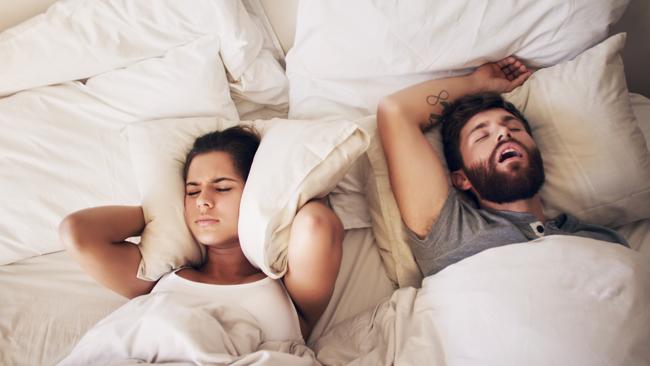
It’s a concept known as “sleep divorce” and new data suggests about 14 per cent of Australian couples sleep apart every night, with another 31 per cent engaging in it at least once a month to improve their rest.
“Sleep divorce is becoming more common around the world, and while it can enhance individual rest … it may also introduce emotional distance,” says Alison Wimms, director of medical affairs at ResMed.
“We see that disrupted rest can impact our relationships and can lead to a decline in intimacy.
“Some side effects Australians reported experiencing after a poor night’s sleep included poor mood, lack of energy to spend with loved ones, and decreased libido. In the long run, these can potentially impact the relationships with those we care about the most.”
The figures are based on data from the ResMed 2025 Sleep Survey which aims to provide a “snapshot” of how people around the world sleep. It collects nationally representative data from 13 markets, totalling 30,026 respondents.
The newly released Australia-specific data found 83 per cent of respondents say their partner disrupts their sleep, with 11 per cent saying the interruption was nightly.
Sleep psychologist and chief executive of the Sleep Health Foundation Moira Junge says the findings are concerning and align with her understanding of sleep problems. She often treats couples who experience intimacy concerns because of poor sleep and she says being open and transparent about it can be key to overcoming it. If the lack of intimacy is causing distress, she says there are workarounds.
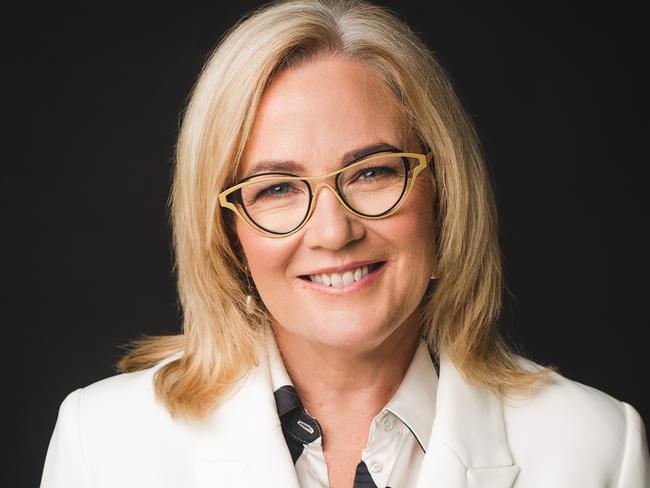
“I think people can feel really isolated,” Dr Junge says. “They think they’re the only ones going through it.
“But if people do enjoy being in separate rooms, you can still have your intimacy, maybe just have it at other times of the day or in other rooms.”
She says the concept of sleep health is one that’s been difficult to get people to take seriously.
“I see it as an urgent health issue that’s under recognised, misunderstood and undervalued.
“With chronic partial sleep deprivation, the risks are acute. People will be less alert and have less reaction time, less concentration, memory, those sorts of things. Then longer term, there’s increased risk of chronic diseases: increased cardiovascular risk, increased risk of some dementias, Type 2 diabetes, obesity, mental health conditions.”
Dr Junge says people with mental health conditions are also far more likely to experience poorer sleep.
“There’s a bi-directional relationship, a bit of a chicken and egg situation, with sleep and mental health conditions where 90 per cent of people with a mental health condition will have sleep problems and people who’ve got sleep problems, they’re four times more likely to have anxiety or depression or bipolar.”
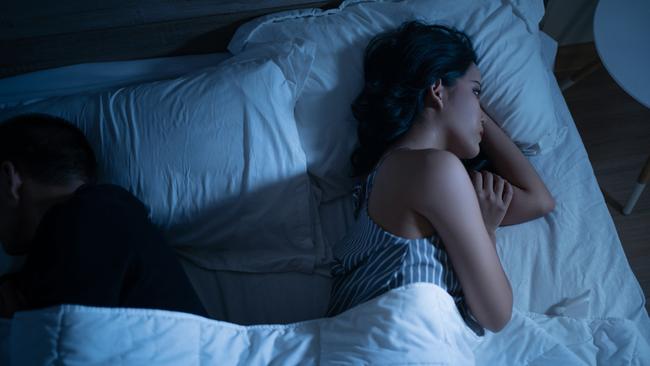
The study also found a troubling trend, with Australians far less likely than people from other regions surveyed to seek help for consistently poor sleep.
“Forty-one per cent of Australians say they wouldn’t seek help for poor sleep and would just live with it,” Dr Wimms says. “This is the highest rate of all countries surveyed and is far higher than the global average of just 22 per cent.”
Common culprits of poor sleep can include stress, anxiety and financial pressure as well as undiagnosed sleep disorders such as sleep apnoea which can lead to interrupted sleep and snoring, both of which can be exhausting and affect a person’s partner.
“People with sleep apnoea experience multiple stops and starts of breathing due to the muscles in the upper airway relaxing and closing during sleep,” Doctor Wimms says. “The brain wakes the body slightly to reopen the airway, disrupting deep sleep and increasing stress on the heart. Over time, this raises the risk of high blood pressure, heart disease, and cognitive decline.”
If you wake feeling tired after a full night’s sleep, she says it could be worth investigating if you have sleep apnoea or another sleep-related condition. Those with it may benefit from a sleep apnoea machine that uses mild air pressure to keep a person’s airways open as they sleep.
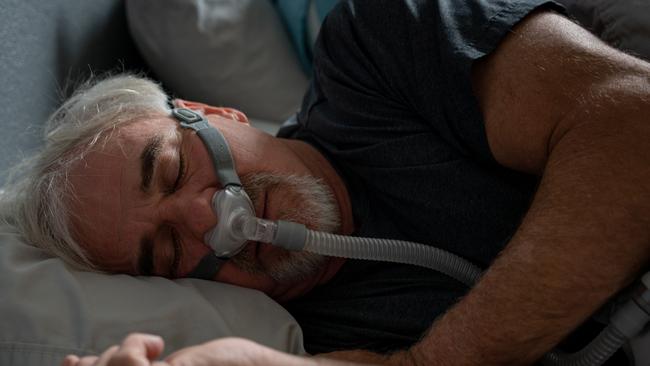
For everyone else, Dr Junge says there are multiple other steps people can take to try to get a better night’s sleep. The first is to unwind properly. What that looks like will differ for everyone, but she recommends taking note of activities that help you feel relaxed and calm and avoid anything that keeps you alert. For some people, that may include a digital cleanse closer to bedtime or avoiding overly strenuous activity.
A heavy meal too close to bed, too many stimulants like caffeine, alcohol, or drugs can also cause interrupted sleep, so limiting those in the three to four hours before bed may help some people. Climate control can also play a role, especially during menopause, so room temperature or opting for breathable bedding can also help.
Dr Junge also suggests cognitive brain therapy and meditation can be effective for people and is, at the very least, worth exploring before opting for medication.
The Sleep Health Foundation also has an online resource library for people who are looking for more help.


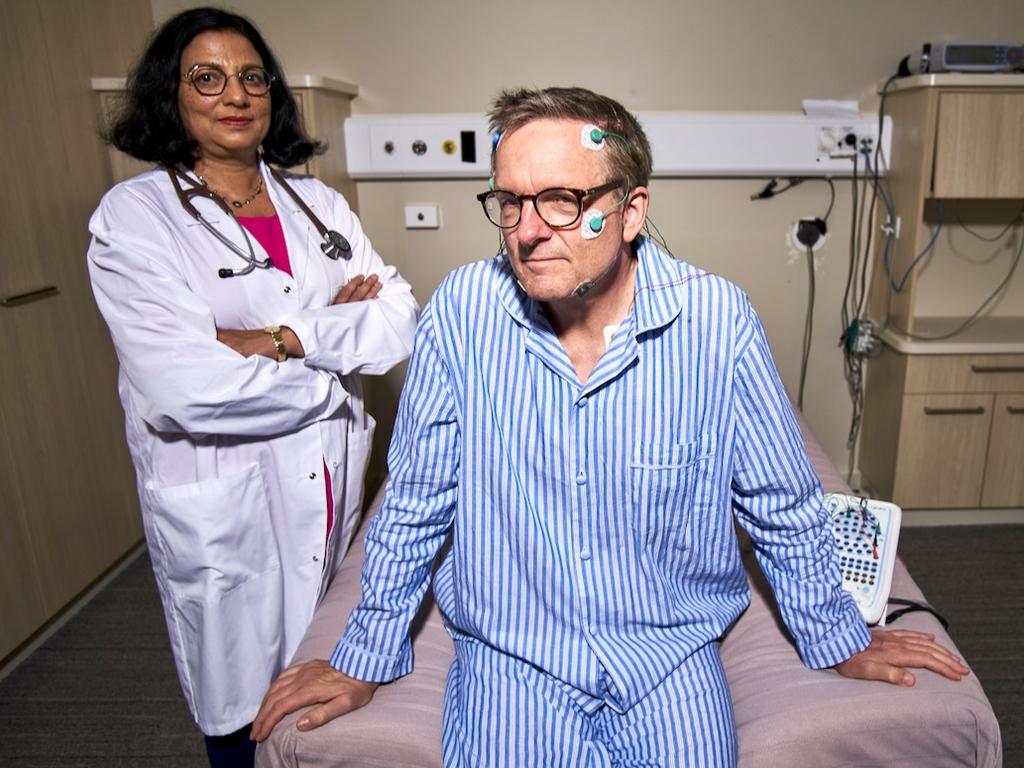



To join the conversation, please log in. Don't have an account? Register
Join the conversation, you are commenting as Logout